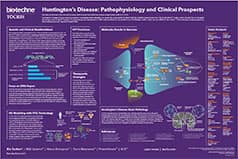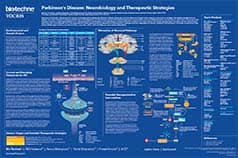Kynurenine 3-monooxygenase
Kynurenine 3-monooxygenase (KMO, EC 1.14.13.9) is a 56 kDa flavoenzyme that catalyzes the hydroxylation of L-kynurenine (L-Kyn) to 3-hydroxykynurenine (3-HK) in the kynurenine pathway, the major route for tryptophan metabolism.
Kynurenine 3-monooxygenase Inhibitors |
|
|---|---|
| Cat. No. | Product Name / Activity |
| 3254 | Ro 61-8048 |
| Potent kynurenine 3-monooxygenase (KMO) inhibitor | |
Kynurenine 3-monooxygenase (KMO, EC 1.14.13.9) is a 56 kDa flavoenzyme that catalyzes the hydroxylation of L-kynurenine (L-Kyn) to 3-hydroxykynurenine (3-HK) in the kynurenine pathway, the major route for tryptophan metabolism.
KMO is found in the liver, kidney and some immune cells and is localized to the outer membrane of mitochondria where it is anchored via its hydrophobic C-terminus, which contains a putative targeting sequence for this location. Both the targeting sequence and a noncovalent flavin adenine dinucleotide (FAD) cofactor are required for proper enzyme function, which is dependent on FAD reduction.
Like IDO, KMO is induced in response to pro-inflammatory stimuli, and the conversion of L-Kyn to 3-HK forms the start of the "neurotoxic" fork in the kynurenine pathway, which results in the formation of toxic L-Trp metabolite, quinolinic acid (QUIN). The "neuroprotective" pathway that is regulated by kynurenine amino transferases (KATs) converts L-Kyn to kynurenic acid (KynA).
Inflammation can induce expression of KMO and drive the production of QUIN which is thought to exacerbate neurodegenerative disorders as well as anxiety, depression and epilepsy. Inhibitors of KMO have shown some success in inhibiting neuroinflammation or the progression of Parkinson's disease, Huntington's disease and Alzheimer's disease.
External sources of pharmacological information for Kynurenine 3-monooxygenase :
Literature for Kynurenine 3-monooxygenase
Tocris offers the following scientific literature for Kynurenine 3-monooxygenase to showcase our products. We invite you to request* your copy today!
*Please note that Tocris will only send literature to established scientific business / institute addresses.
Depression Poster
Major depressive disorder is characterized by depressed mood and a loss of interest and/or pleasure. Updated in 2015 this poster highlights presynaptic and postsynaptic targets for the potential treatment of major depressive disorder, as well as outlining the pharmacology of currently approved antidepressant drugs.
Huntington's Disease Poster
Huntington's disease (HD) is a severe monogenic neurodegenerative disorder, which is characterized by the prevalent loss of GABAergic medium spiny neurons (MSN) in the striatum. This poster summarizes the effects of mutant huntingtin aggregation implicated in the pathology of HD, as well as highlighting the use of iPSCs for HD modeling.
Parkinson's Disease Poster
Parkinson's disease (PD) causes chronic disability and is the second most common neurodegenerative condition. This poster outlines the neurobiology of the disease, as well as highlighting current therapeutic treatments for symptomatic PD, and emerging therapeutic strategies to delay PD onset and progression.




